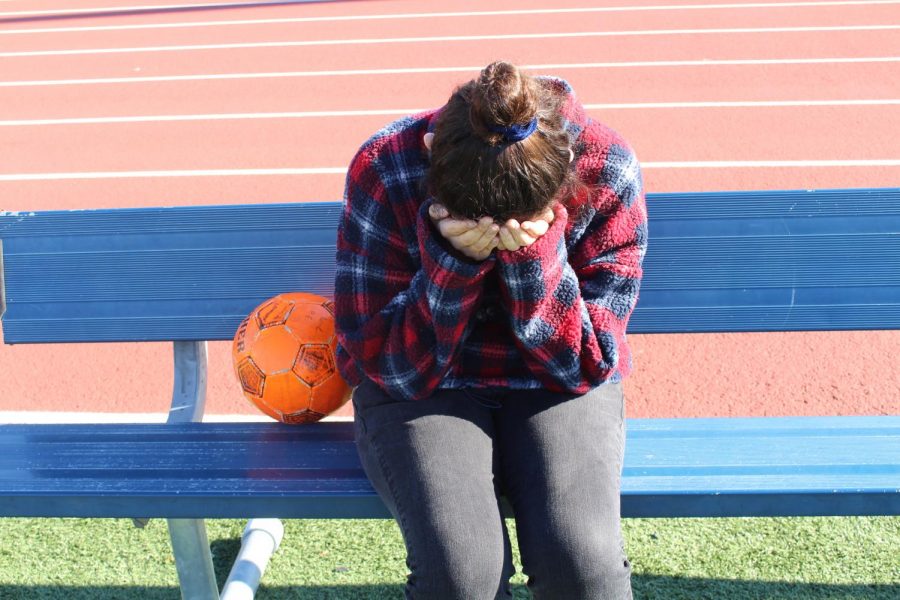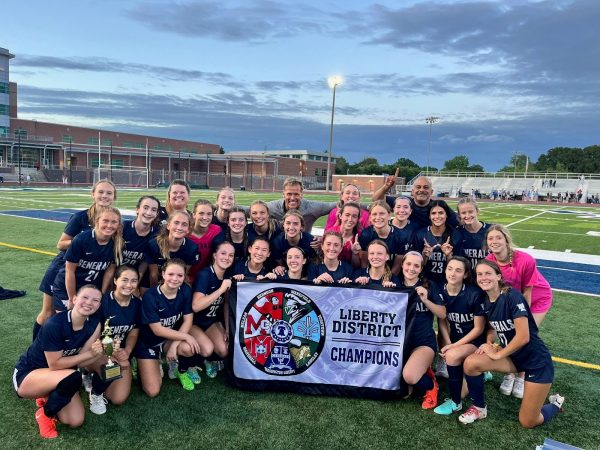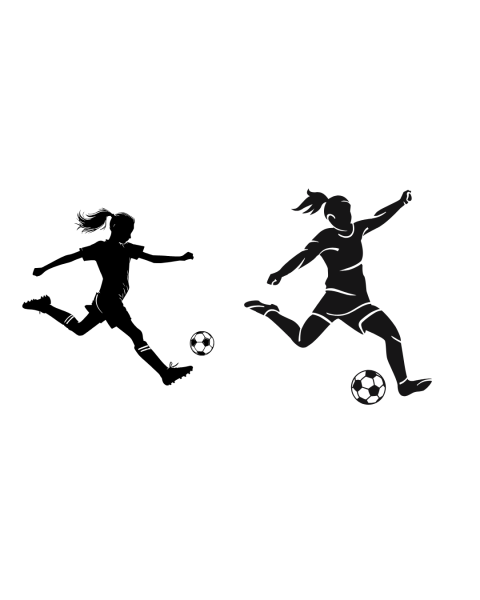The impact of concussions on academics
When senior Ellie Lamantia got hit in the head during field hockey tryouts two years ago, she got a concussion, leading to a four-month-long struggle with academics. Lamantia is not alone, as concussions are a common head injury that can impact a student’s ability to participate in academics, sports and everyday activities.
Concussions are a head injury that can occur after an impact to the head causing symptoms such as headaches, confusion, dizziness, nausea and vomiting. Concussions often occur in sports, but the impact of concussions goes beyond just athletics. Students can also get concussions from non-sports related activities such as car accidents. Coming back to school can be particularly challenging for students because they may not be able to complete their make-up work when they come back as the brain can heal at different rates depending on multiple factors.
“It’s not like being sick where you can just make up the work when [you] come back because when I came back, I was still healing,” junior Sarah Nordlinger said. “I could barely do the work that we were doing then; I couldn’t even think about doing the makeup work yet.”
While concussions may not seem as serious as other injuries because they are not visible, they can be very dangerous and need to be taken seriously. Concussions can take several months to heal, so students need to be careful to rest during that time period.
“We treat it like we would any other physical injury in the sense of allowing the brain to rest and slowly building it back up,” Health and Physical Education (PE) teacher Ms. Sara Fiorini said. “Just like somebody with a sprained ankle is going to take time off to rest and be on crutches, we’ve got to let the brain rest as well.”
In addition to the stress that comes along with academics, student-athletes may also worry about not being able to participate in athletics and letting their teammates and coaches down or missing out on big games.
“A lot of times here, especially when there are big rivalries like Yorktown [High School] or Wakefield [High School], it’s very emotional and stressful for [concussed students] because they want to get back,” athletic trainer Mr. Mike Harrington said. “Obviously, there are parameters where we have to limit their return to play, so it’s sad for them.
Communication is a key part of concussion management. Students need to make sure they communicate to all of their teachers what they can and cannot do, which can be difficult for students with concussions. This can be difficult because unlike in elementary or middle school, parents are less involved and students are more independent, so students have the responsibility of communicating their own needs to others.
“There’s not always a direct line to the parent,” Mr. Harrington said. “There’s not always a direct line to an overseeing physician… I’m not going to see the athlete all the time… so, it’s hard to treat [the concussion] and manage how they are progressing.”
Concussions are not in the curriculum for ninth or tenth-grade health, so while athletes learn about concussions from their coaches, non-student athletes may be missing out on important information such as the symptoms of a concussion or what to do if they think they might have one.
“They aren’t talked about a lot,” sophomore Sophia Bailey said. “Maybe a little bit in health class when you’re talking about functioning, but if that, it was probably like ten minutes and then you forgot it directly after.”
Professionals say while it is important for students to learn about concussions, it is also important for teachers to be educated on them and the effects they can have. This year, the county mandated training for teachers on concussions. However, the training is only twenty-two minutes long and some students feel that this is not enough.
“It affects every area of your life,” Lamantia said. “Teachers can be more informed of the toll it takes on your mental health as well, and the stress of school plays into mental health, so if they can eliminate some of that stress, then it would help with that side of things.”
The counselors help students by emailing teachers to inform them about the concussion and helping with concussion plans. When students have concussions, they can get a concussion plan (states what accommodations students need), which is written by their doctor and is uploaded into Synergy for their teachers to view. Students can also ask for an Intervention Assistance Team meeting, which can lead to a Section 504 meeting as well. Additionally, there are small actions teachers can do to help students.
“My [psychology] teacher would sometimes turn the lights off for me in class,” Lamantia said. “That was something most teachers don’t know will help but really affects you when you’re concussed and you’re surrounded by fluorescent lighting. That’s a simple thing any teacher could do.”
For many students, having a concussion is frustrating from having difficulty with academics to the frustration of not being able to participate in sports. When students communicate their needs to teachers and other school staff, they can heal and get back to everyday activities as quickly as possible. If students are struggling with their academics while they have a concussion, they can talk to their counselor to figure out a solution.
“When I was concussed… the nurse’s office [was] just not a good place to rest because there’s bright fluorescent lighting,” senior Ellie Lamantia said. “There was this office room that was barely ever used and [my counselor] suggested that I use that for when I needed to take breaks at school. That was a lifesaver.”
Overall, teachers and students both said that it is helpful when everyone is on the same page. When students, teachers and counselors work together, students can heal successfully and get back to academics and athletics as soon as possible.
“If it wasn’t for the compassion and the support of my teachers, I wouldn’t have been as successful as I was through that period of time,” senior Eli Roggen said.











